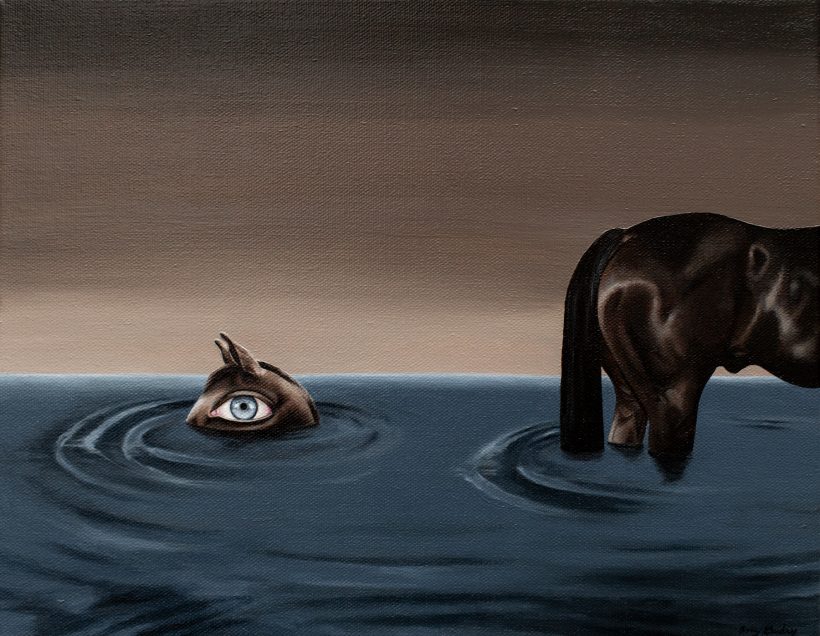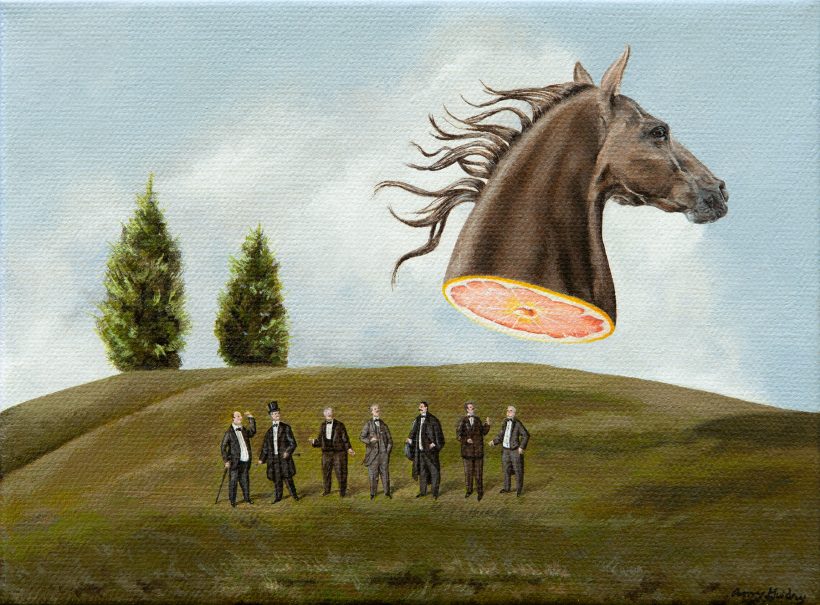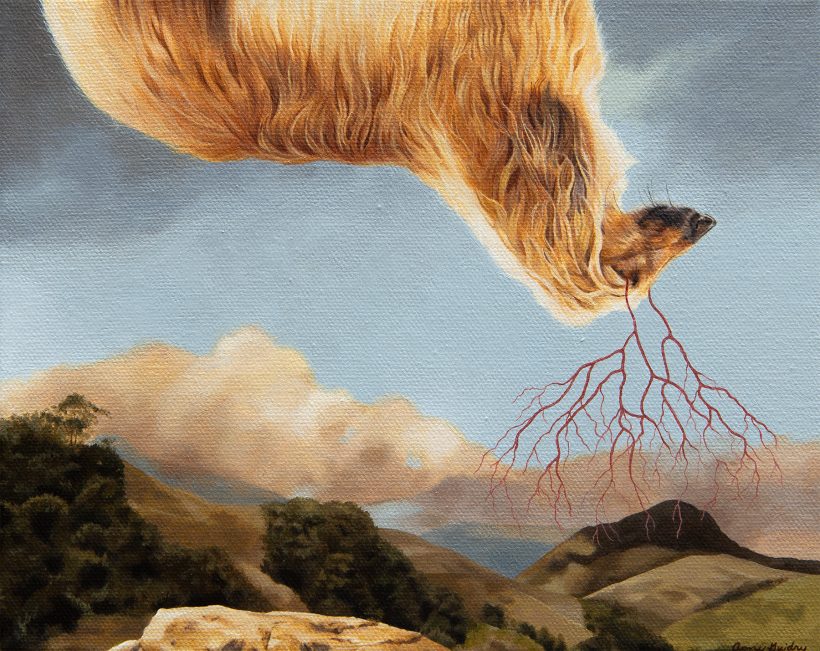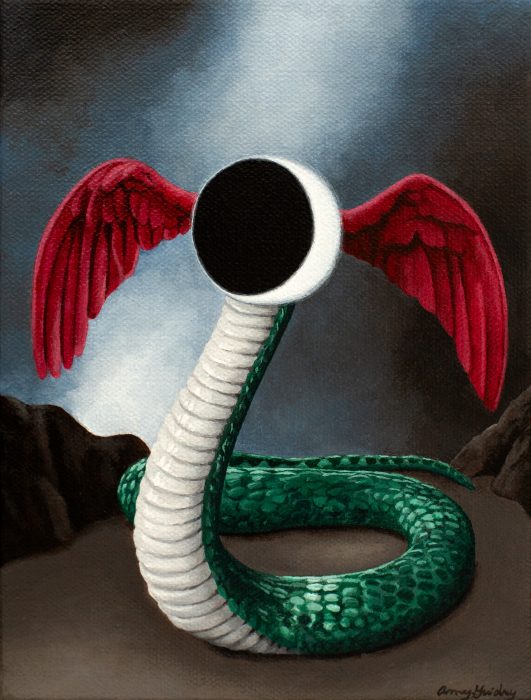
Divya Alamuri: Your work seems to have a surrealist style. Would you say that’s an art movement that influences your practice? Who have been your influences in the past, and who are they now?
Amy Guidry: I’ve been inspired by Surrealist artists from a very young age including Salvador Dali, Rene Magritte, and Frida Kahlo. Magritte’s “The Castle of the Pyrenees” has been one of my favorite paintings since seeing it in an art book as a child. Later on Leonora Carrington and Remedios Varo grew to be favorites as well.

DA: I was really taken by the titles—both for the individual pieces and the series as a whole. Could you talk a bit about your titling process? Who is the collective “we” implied in the title In Our Veins?
AG: Sometimes I have a title in mind as I’m sketching out a concept, but I usually title pieces once they’re finished. There may be elements that develop in a painting while in progress that weren’t in the initial sketch or a change to the background or some other aesthetic alteration that I feel influences the title. I like to let the title reveal itself over time.
The implied “we” is all of us- humans as well as the entire animal kingdom, plants, the earth. All of us are connected on a biological level as well as cosmically, and depending on your beliefs, there can be a spiritual connection as well. Veins have multiple meanings which refer not just to the vessels that transport our blood, but also in reference to water, or veins of a leaf or an insect wing, further solidifying our connection to all of nature.

DA: What is your work in response to? Are there specific events or moments you’re in conversation with—particularly in ‘Committee of Indecision’?
AG: My work explores our connection to the natural world, with an emphasis on ecological and animal welfare. “The Committee of Indecision” doesn’t deal with any event in particular but with the general frustration and apathy associated with politicians. The grapefruit is associated with many meanings, avoidance being one of them. As a large horse head with grapefruit underneath looms over them, an antiquated group in early 1900s garb stands around, accomplishing nothing.
DA: Your work seems to be very concept driven. Can you tell us about your artistic process? How do you move from inspiration to execution?
AG: I start off with a lot of small thumbnail sketches. Any idea that comes to mind, I make a quick, small, extremely basic sketch of it in my sketchbook and maybe write down a few notes about it. I keep a few sketchbooks full of ideas and sort through those to find the ones that speak to me at the moment and work together as a cohesive body of work. From there I usually make a larger sketch to work out other details – size, color, changes to subject matter, etc. Sometimes I make multiple versions of the larger sketch so that I can compare alterations and decide on the “best” one. Then I transfer the final sketch to canvas before adding multiple layers of paint, building upon each layer, one at a time, and adding fine detail during the last phase of painting.

DA: Your work also features natural landscapes, and at times calamities within those landscapes. What compels you to set your subjects against these backgrounds? What are the themes of interest that this choice highlights?
AG: The landscapes are a way to use the surreal to convey climate change, but sometimes they are just beautiful and serene to show what we have to lose. Deserts, fire, or subjects surrounded by water illustrate some of the extremes we see more often as global warming increases. Sometimes I may just paint a more dramatic sky as an omen. Other times I paint forests or flowers to remind us of the beauty of nature and why it needs to be conserved.
Overall, my work is about respecting and caring for each other, animals, and the planet itself. From there, maybe it will inspire people, get them questioning, or thinking about how they can bring forth positive change in the world. Thank you for this opportunity.

Amy Guidry is an artist currently residing in Lafayette, Louisiana. She comes from a family of artists including the late painter Eleanor Norcross. Her work has been exhibited in galleries and museums nationwide. Her paintings are present in public and private collections throughout the United States, Canada, Europe and Asia.
